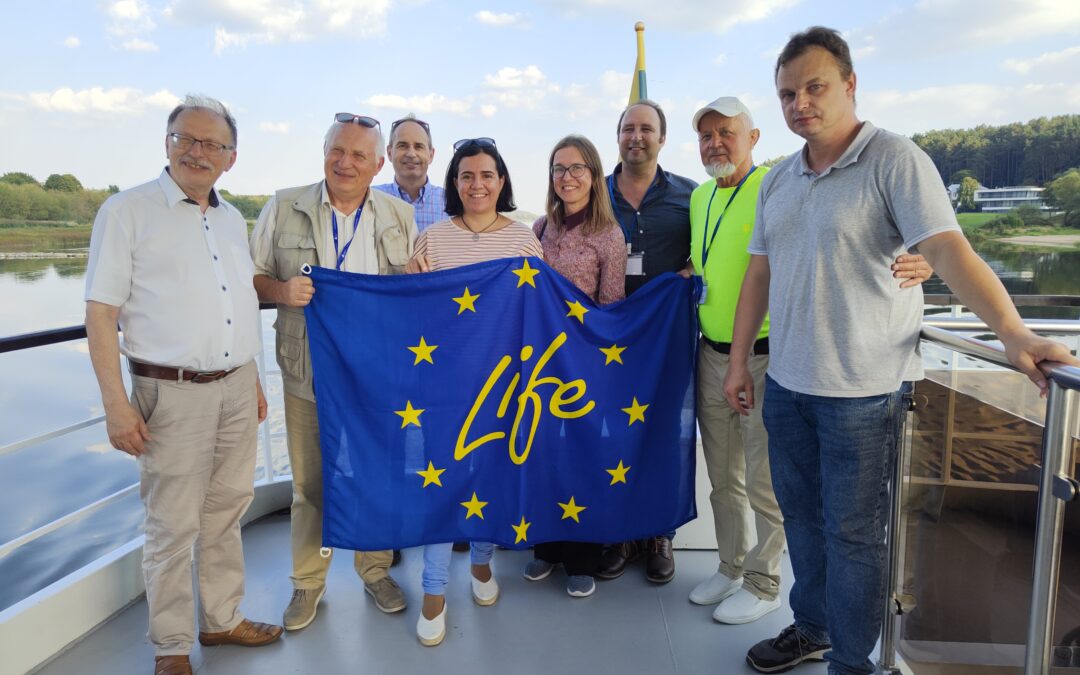More than 30 participants met on 12 and 13 September in Kaunas (Lithuania) to discuss mini-hydro generation in the urban water cycle at an international workshop in the framework of LIFE NEXUS project. Representatives of water supply and treatment from Lithuania, Spain and Poland met in this event organized by the Water Engineering Department of the Lithuania University – Vytaytas Magnus University-.
Raquel M. López Fernández, researcher of the Energy Division and coordinator of the LIFE NEXUS project at CARTIF, and Januzs Steller, president of the Polish Association of Hydroelectricity and member of the Institute of Fluid Machinery of the Polish Academy of Sciences (IMP PAN), were responsible for opening the meeting with a brief introduction to the attendees.
During the first part of the session, Lina Sveklaitė, Director of the National Renewable Energy Institute of the Ministry of Energy, presented the national sustainable energy strategy; Dainius Markauskas, President of the Lithuanian Hydropower Association, discussed the challenges faced by small hydropower plants in the country on a daily basis; Aušra Šmitienė, leader of the LIFE EenerLIT project, presented the LIFE environment programme; finally, Darius Gražys, technical director of the Kaunas water company (UAB Kauno vandebys), spoke about energy demand and recovery in the municipal water industry.
This was followed by the first session on the LIFE NEXUS project, which addressed the assessment of the hidden potential of Spain, Poland and Lithuania in terms of urban water supply networks. In this block, the first European inventory on the potential for micro-hydro energy recovery in the water industry was presented; the recovery of energy dissipated in municipal and industrial water cycles was also discussed; and energy recovery through an innovative system based on the integration of a pump as a turbine and energy storage. The last part of the session included a training workshop in Lithuanian on technology, basics and examples focusing on the Lithuanian case study.
The LIFE NEXUS project aims to demonstrate the potential of mini-hydro generation systems to recover untapped energy in water networks in European cities. The role of the research team in this proposal has been based on the demonstration of a mini-hydro prototype based on the integration of a pump as a turbine coupled to a battery storage or the first European inventory on the potential for energy recovery in urban water networks.
